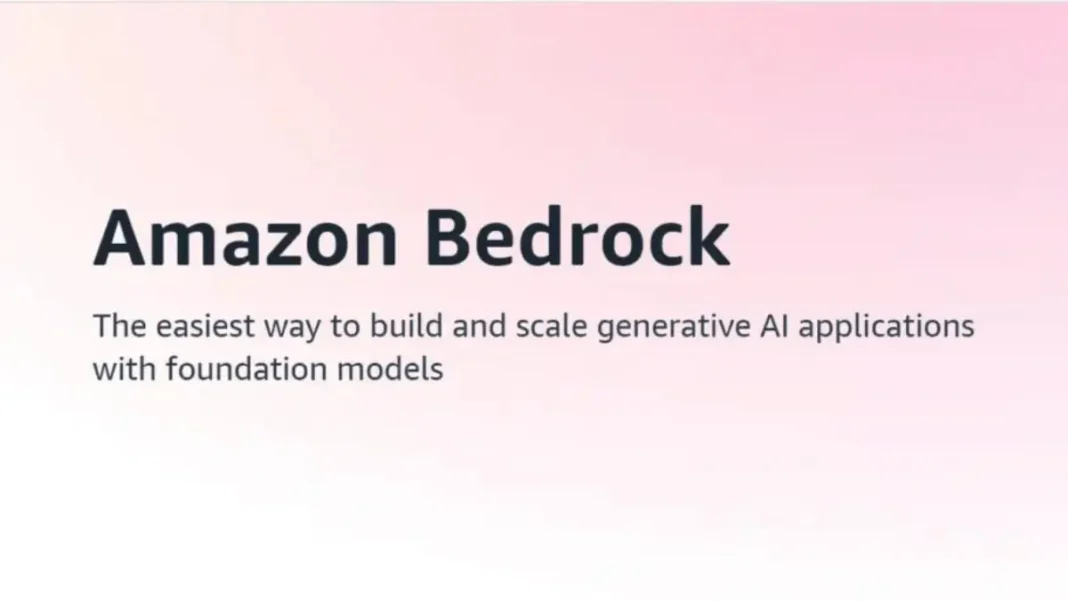Intoduction:
Generative AI is one of the most exciting and promising fields of artificial intelligence, as it enables machines to create novel and realistic content, such as text, images, audio, and synthetic data, in response to human prompts. Generative AI applications have the potential to transform various domains, such as conversational AI, content creation, data grounding, and more.
However, building and scaling generative AI applications is not easy, as it requires access to high-performing foundation models (FMs), which are large-scale neural networks that can generate diverse and coherent outputs across multiple modalities.
Leading AI businesses and research institutions like OpenAI, AI21 Labs, Anthropic, Cohere, Meta, Stability AI, and Amazon frequently develop FMs, which are constantly evolving and improving. Moreover, FMs need to be customized and integrated with enterprise systems and data sources while ensuring security, privacy, and responsible AI.
This is where Amazon Bedrock comes in. Amazon Bedrock is a fully managed service that offers a choice of high-performing FMs from leading AI companies and Amazon via a single API, along with a broad set of capabilities you need to build and scale generative AI applications with security, privacy, and responsible AI.
Using Amazon Bedrock, you can easily experiment with and evaluate top FMs for your use case, privately customize them with your data using techniques such as fine-tuning and retrieval-augmented generation (RAG), and build agents that execute tasks using your enterprise systems and data sources.
Since Amazon Bedrock is serverless, you don’t have to manage any infrastructure, and you can securely integrate and deploy generative AI capabilities into your applications using the AWS services you are already familiar with.
We will examine the features and advantages of Amazon Bedrock and contrast them with Microsoft’s Azure Open AI, a related service.
Table of Contents
Features and Benefits of Amazon Bedrock
Amazon Bedrock provides everything you need to build and scale generative AI applications. Here are some of the key features and benefits of Amazon Bedrock:
Model choice: Amazon Bedrock helps you rapidly adapt and take advantage of the latest generative AI innovations with easy access to a choice of high-performing FMs from leading AI companies like AI21 Labs, Anthropic, Cohere, Meta, Stability AI, and Amazon. Amazon Bedrock’s single API access, regardless of the models you choose, gives you the flexibility to use different FMs and upgrade to the latest model versions with minimal code changes.
Customization: Amazon Bedrock allows you to privately customize FMs with your own data using techniques such as fine-tuning and continued-pretraining, which adjust the model’s parameters and improve its performance on specific tasks or in certain domains. You can also use Retrieval Augmented Generation (RAG), which queries your data sources to augment the model’s generation of responses.
Agents: Amazon Bedrock enables you to build agents that use FMs, make API calls, and (optionally) query knowledge bases in order to reason through and carry out tasks for your customers. For example, you can build a conversational agent that can book a flight, a content creation agent that can write a blog post, or a data grounding agent that can extract insights from a spreadsheet.
Security and compliance: Amazon Bedrock offers built-in security and compliance features, such as encryption, private networking, regional availability, and responsible AI content filtering. You can also use AWS Identity and Access Management (IAM) to control access to your resources, and AWS CloudTrail to monitor and audit your API calls.
Serverless and managed: Amazon Bedrock is a serverless and managed service, which means you don’t have to worry about provisioning, scaling, or maintaining any infrastructure. You only pay for what you use, and you can easily and securely integrate and deploy your generative AI applications using AWS tools, such as AWS Lambda, Amazon API Gateway, Amazon S3, and Amazon SageMaker.
How Amazon Bedrock Compares to Azure Open AI
Azure Open AI is a service that provides access to generative AI models on the Azure cloud. Azure Open AI co-develops the APIs with OpenAI, ensuring compatibility and a smooth transition from one to the other. Azure Open AI offers advanced language models, such as OpenAI GPT-4, GPT-3, Codex, DALL-E, and Whisper, which can be fine-tuned to your specific needs for a variety of use cases.
While Azure Open AI and Amazon Bedrock have some similarities, such as offering access to high-performing FMs and customization capabilities, there are also some key differences that make Amazon Bedrock a better choice for building and scaling generative AI applications. Here are some of the advantages of Amazon Bedrock over Azure Open AI:
More model choice: Azure Open AI only offers access to OpenAI models, which may not be the best fit for your use case or domain. Amazon Bedrock offers a wider range of FMs from leading AI companies and Amazon, giving you more options and flexibility to find the model that is best suited for your application.
More customization techniques: Azure Open AI only supports fine-tuning as a customization technique, which may not be sufficient to achieve the desired results. Amazon Bedrock supports both fine-tuning and continued-pretraining, which can further improve the model’s performance on specific tasks or in certain domains. Amazon Bedrock also supports RAG, which can augment the model’s generation of responses with information from your data sources.
More capabilities to build agents: Azure Open AI does not offer any built-in capabilities to build agents that use FMs, make API calls, and query knowledge bases. You have to use additional services and tools, such as Azure Logic Apps, Azure Functions, and Azure Cognitive Search, to build and integrate your agents. Amazon Bedrock offers a comprehensive set of capabilities to build agents that use FMs, make API calls, and query knowledge bases, all within the same service and API.
More security and compliance features: Azure Open AI does not offer any built-in security and compliance features, such as encryption, private networking, regional availability, and responsible AI content filtering. You have to use additional services and tools, such as Azure Key Vault, Azure Virtual Network, Azure Policy, and Azure Purview, to secure and manage your generative AI applications. Amazon Bedrock offers built-in security and compliance features, such as encryption, private networking, regional availability, and responsible AI content filtering, along with AWS IAM and AWS CloudTrail, to secure and manage your generative AI applications.
Conclusion
Amazon Bedrock is a fully managed service that offers a choice of high-performing FMs from leading AI companies and Amazon via a single API, along with a broad set of capabilities you need to build and scale generative AI applications with security, privacy, and responsible AI. Amazon Bedrock has many advantages over Azure Open AI, such as more model choice, more customization techniques, more capabilities to build agents, and more security and compliance features. If you are interested in building and scaling generative AI applications, you should definitely check out Amazon Bedrock and see how it can help you achieve your goals.
To get started with Amazon Bedrock,
You can visit the https://aws.amazon.com/bedrock/
Read the [documentation](https://docs.aws.amazon.com/bedrock/latest/userguide/what-is-bedrock.html)




